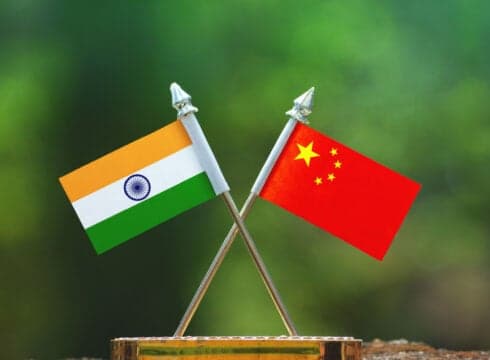China only produced seven unicorns in 2022, while 21 Indian startups turned unicorns during the year
However, India saw a 54% decline in the number of unicorns produced compared to a record 44 in 2021
China’s ‘Zero COVID’ policy and the consequent business disruptions contributed significantly to the decline in the unicorn pace
Inc42 Daily Brief
Stay Ahead With Daily News & Analysis on India’s Tech & Startup Economy
Even as a funding slowdown plagued the Indian startup ecosystem in 2022, the country produced 21 new unicorns during the year, four times more than that produced by the world’s second-largest startup ecosystem China.
According to Crunchbase, China only saw seven startups turning unicorns this year. Meanwhile, 21 Indian startups joined the $1 Bn valuation club to take the total number of unicorns to 108 in the country.
The production of 3X more unicorns than China during a year when late stage funding was heavily impacted due to several macroeconomic factors shows the maturity of India’s startup ecosystem.
Even so, India saw a 54% year-on-year (YoY) decline in the number of startups turning unicorn as the country saw a record 44 startups turn unicorn in 2021.
India got its 100th unicorn in May this year and has since then added eight more unicorns. In 2022, there were more women-led unicorns than ever, but the average time to unicorn remained flat. However, as the funding winter set in, the pace of minting unicorns dropped drastically.
Of the 21 unicorns minted in 2022, 13 were produced in the first three months of the year. Tata-owned epharmacy 1Mg was the last unicorn of 2022, hitting the $1 Bn valuation mark after raising $40 Mn in September.
In 2021, India produced 44 unicorns, 2X more than China’s 21, outpacing the neighbouring country in the unicorn rush.
However, the COVID-19 pandemic and the Chinese government’s policies also played a key role in the decline in the number of startups turning unicorns in the country. From the start of 2021 until just a few days ago, the country employed a “Zero COVID” policy. This led to business disruptions, leading to investors moving away from the country.
A more obvious result of the Zero COVID policy is the increased manufacturing of iPhones and other Apple products in India. Even as China continues to be Apple’s workshop, India is now set to take over about a quarter of the total iPhone production in the coming years.
China’s policies notwithstanding, its startup ecosystem is one of the closest competitors to India’s on the global stage. However, the gulf between the two ecosystems is vast.
According to Inc42 data, Chinese startups secured $837 Bn in funding between 2014 and 2022 as compared to Indian startups raising about $136 Bn. For some context, US-based startups secured $2.7 Tn in funding during the same time.
While India’s startup ecosystem is the third largest in terms of size, funding and unicorns generated, China and the US are far ahead in all of these metrics.
However, India has taken a slew of steps, like improving the ease of doing business, introducing sector-specific startup policies and production-linked incentive (PLI) schemes for sectors such as drones and electronics manufacturing, and easing rules for investors to invest in Indian startups, for the growth of the startup ecosystem in the country.
These policies have seen the startup ecosystem in India innovate and build products at the population scale. Further, the government is also building a robust regulatory framework to support startups and protect customers at the same time.
{{#name}}{{name}}{{/name}}{{^name}}-{{/name}}
{{#description}}{{description}}...{{/description}}{{^description}}-{{/description}}
Note: We at Inc42 take our ethics very seriously. More information about it can be found here.


